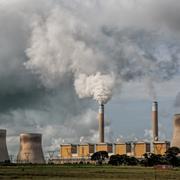Swift Energy Transition Will Aid Climate And Economy: Ortec

A quick and orderly energy transition away from fossil fuels could be beneficial to equity markets if significant investments were made to increase the sustainability of infrastructure in the coming decade, according to Ortec Finance.
The Dutch consultancy said its asset-liability management (ALM) model, which factored in climate measures, predicted positive effects in a scenario focused on global warming of less than 1.5°C above pre-industrial levels.
Higher levels of investment would increase returns from 7.6% to 7.9%, Ortec reported.
“The outcome shows that an energy transition would be beneficial to both the climate and the economy,” said Willemijn Verdegaal, a co-developer of the ALM model.
The model – presented at a climate event in Paris on Tuesday – was developed in co-operation with Dutch pension funds PME and Philips, insurer ASR and Canadian pension fund OPTrust.
Separate calculations by Dutch consultancy Sprenkels & Verschuren predicted that pension funds should prepare for high volatility and low returns if global warming reaches 4°C above pre-industrial levels.
“We have looked into the economic impact of governments taking the energy transition seriously through making large investments in, for example, heat pumps and thermal insulation to reduce carbon emissions,” said Ortec’s Verdegaal.
She added that carbon pricing should be part of the energy transition process.
“A robust price would be important, combined with a timely announcement to enable all parties to prepare properly,” she said. “That would give the market additional incentives to invest in carbon reduction.”
Verdegaal also highlighted that the Dutch government should co-ordinate all climate measures, including retraining workers whose jobs become redundant as part of a “socially inclusive” transition.
However, she also warned that the 1.5°C scenario was susceptible to shocks, such as sudden climate measures or companies with large oil stocks running into trouble.
If carbon emissions could not be sufficiently brought under control, the economy would be negatively affected by physical effects, including flooding and other extreme weather conditions, which would reduce GDP growth.
According to Ortec Finance, the divestment of, for example, energy firms with high carbon emissions would not be sufficient to protect against the negative impact of the energy transition.
“Climate change would affect the entire economy, interest rates and inflation,” Verdegaal said.
EU Negotiators Agree On Sustainability Taxonomy, Approval Still Needed
Efama calls for action on corporate reporting given investor disclosure requirements Read more
Large Dutch Metal Schemes Keep Premium, Accrual Unchanged In 2020
PMT and PME announce significant contribution rise for 2021 Read more
AP1 Hit By New Rules Breach As Head Of Equities Agrees To Quit
Swedish national pension fund says Olof Jonasson bought into firms AP1 later invested in Read more
IPE Conference: Pension Funds Find Changing Public Opinion Is Part Of A PE Investors Role
“Locusts” perception of private equity poses challenges for would-be investors Read more
IPE Conference: Long-term Horizon Hailed As Key To Improved Investment Approach
‘The biggest risk is that you will not achieve any returns in the coming decades,’ says Jaap van Dam, 300 Club Read more
UK Roundup: TPR Debt Recovery Rate Low, £40m Missed
KPMG sells UK pensions practice Read more

